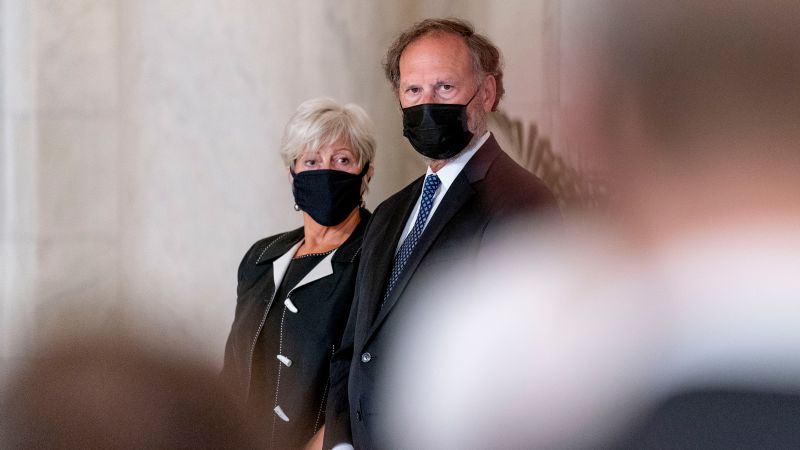In a recent incident, Supreme Court Justice Samuel Alito did not deny that an upside-down American flag was flying outside his house before Joe Biden was sworn in as president, which is often associated with expressing sympathy towards Trump supporters who believed the 2020 election was stolen. However, he claimed that his wife, Martha-Ann, placed the flag in response to disrespectful language on their neighbor’s yard signs. Despite the partisan implications, there is no legal requirement for Supreme Court justices to recuse themselves from cases for showing electoral preferences.
The involvement of Justice Clarence Thomas’ wife, Ginni, in the “Stop the Steal” rally and her communication with White House officials to overturn election results raises more serious ethical concerns. The “Mrs. defense” has been used in other cases involving public figures, such as Senator Bob Menendez and former Rep. Duncan Hunter, to deflect blame onto their spouses for alleged misconduct. The tactic of blaming one’s spouse has also been utilized by former Virginia Governor Bob McDonnell and his wife, Maureen, to portray the governor as unaware of his wife’s corrupt activities.
The trend of using the “Mrs. defense” extends beyond political figures, as seen in cases like former Rep. Jesse Jackson Jr. and his wife misusing campaign funds, and allegations of bribery involving Rep. Henry Cuellar and his wife, Imelda. The defense strategy can also be used in unexpected ways, as seen in the case of Rep. Cori Bush, who is under investigation for potentially misusing funds to pay her husband for security services. In some instances, wives take the blame for illegal activities, as seen in the case of Kim Taylor, who was convicted for a ballot stuffing scheme to help her husband in a congressional primary.
The controversy surrounding Justice Alito is not limited to the flag incident, as he has been critical of the Supreme Court’s decision granting marriage rights to same-sex couples in 2015. He argues that labeling those who believe in traditional marriage as “bigots” infringes on their freedom of expression. The discussion around marriage extends beyond politics, touching on broader societal debates about marriage equality and individual rights. As the use of the “Mrs. defense” continues in various legal cases, the intersection of marriage, politics, and ethics remains a complex and evolving issue in American society.


